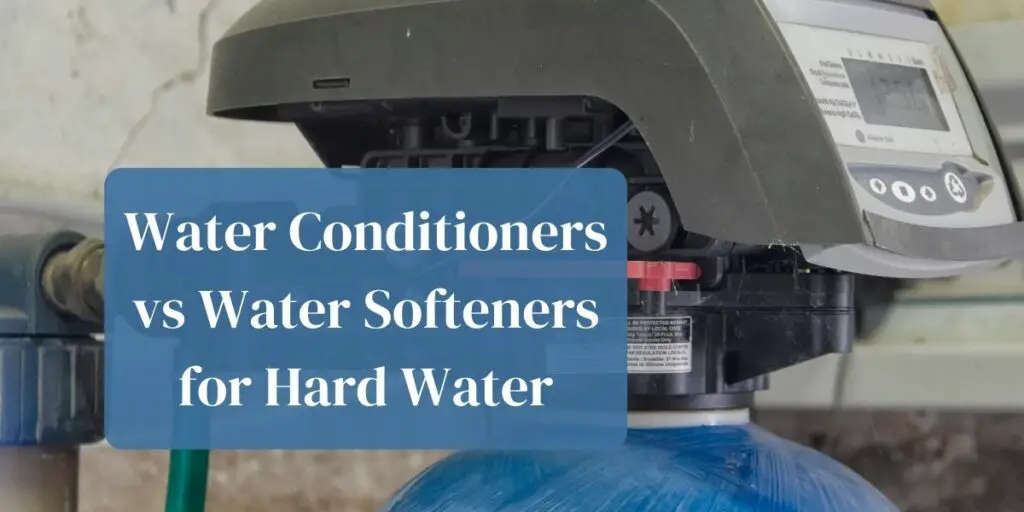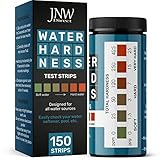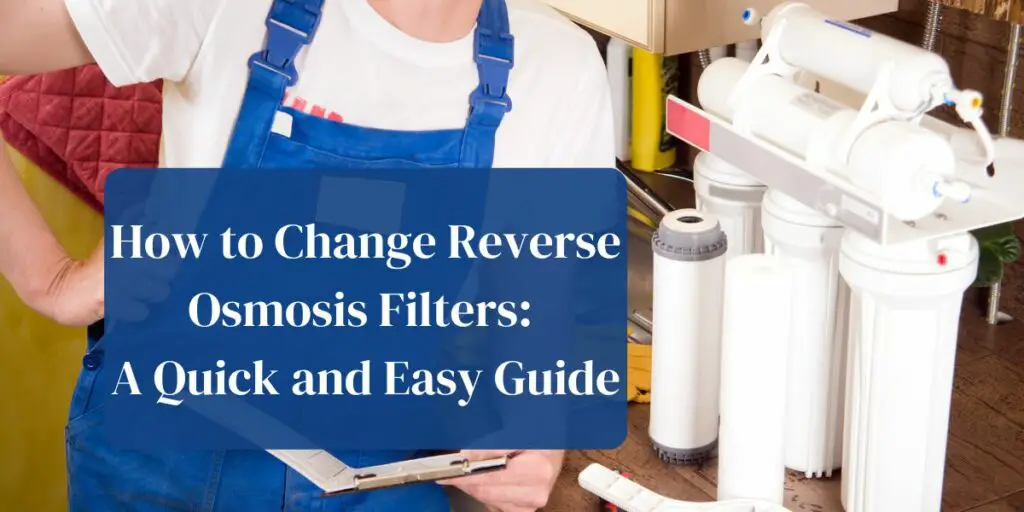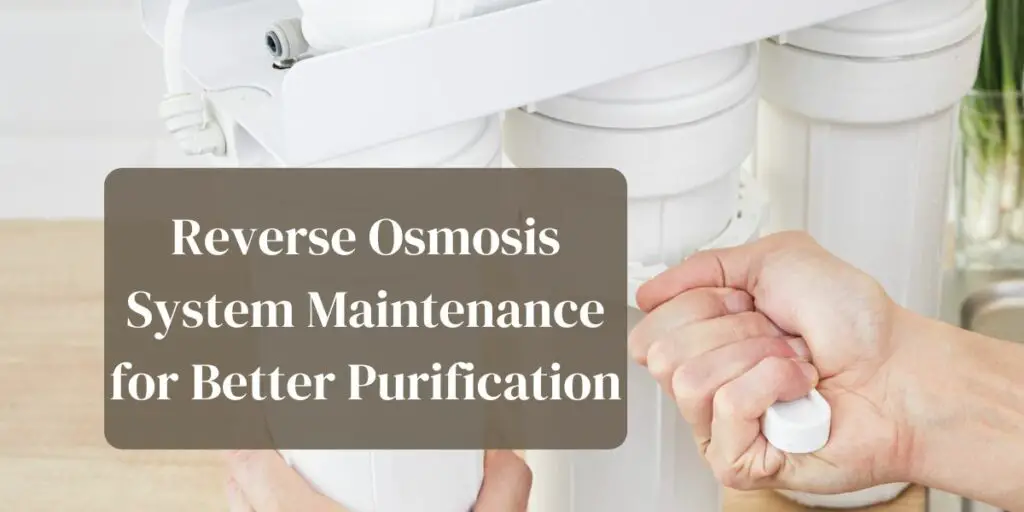If you find your sinks and bath tabs riddled with stains and drains clogged with scale, you’re probably dealing with the effects of hard water. Living in a house plagued with hard water can be a headache for homeowners. Hence, they need to invest in water softeners. But is there a difference in a water conditioner vs a water softener?
We consider water with a higher than average amount of dissolved solids, especially calcium, silica, and magnesium as hard. It is difficult to use this type of water since these minerals cause severe problems on pipes and water fixtures.
Scaling shower heads, bathroom and kitchen faucets, clogged pipes, and wearing out in household hold metallic items often results from the minerals in hard water.
While it is not harmful to drink the hard water, chances are you become frustrated when using it. Soap and detergents form a thick scum on washing basins, and the sight can become an eyesore. Hard water will discolor your whites and leave your dishes foggy and streaked with unsightly spots.
The good news is that water softeners can address the problem of water hardness, but getting the right option for water softeners will depend on the level of hardness in your water supply.
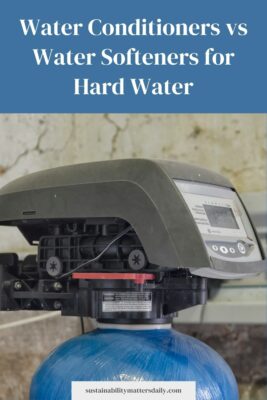
Table of Contents
- Water conditioners vs water softeners for hard water
- How a water conditioner functions
- Benefits of investing in a water conditioner
- Can water conditioning make water safe for drinking?
- When to install a water softener in your home
- Conclusion
Water conditioners vs water softeners for hard water
As you hunt for options to solve your hard water problem, you’re likely to come across two standard solutions: water conditioning and water softening systems. The two systems can provide a solution to your water problem, but you need to pick the right softeners to suit your need.
A water conditioner is a salt-free water softener that alters how the minerals in water behave in a liquid solution. It only reduces the harmful effects the water has on your water systems. We measure the scale of hard water by grains per gallon-GPG. When you use a water conditioner, the amount of grains remains the same.
What that means is that a salt-free water conditioner does not act as a water softener: instead, it makes the minerals in the water lose their ability to adhere to water pipes and plumbing systems. Calcium, magnesium, and silica are beneficial to humans and animals.
Water conditioning doesn’t remove these minerals, which is a good thing as long as your drainage and plumbing system is safe from damage. This makes a good option for most hard water challenges.
On the other hand, the traditional water softening system- as we are going to discuss later in the article- removes the minerals that cause hardness and gives you the best option if you need an adequate water softening system.
When deciding between a water conditioner vs. water softener, your choice should provide a protective solution to your water pipes and drainage.
How a water conditioner functions
Typically, there are various kinds of water conditioners. This depends on the method it uses to change the behavior of minerals and contaminants in the water. Some water conditioners work better than others do.
A standard water conditioner should provide a solution for scale build-up and pollutants.
We have three common types of water conditioners. These are carbon filtration, salt-free water softener, and electromagnetic or magnetic water conditioners.
The carbon filtration system:
The carbon filters in the filtration system remove harmful bacteria and eliminate unpleasant odors and taste from water. If your well water smells of sulfur or if you’re worried about contaminants like lead or pesticides, a water filter is an excellent option.
It can also remove the taste of chlorine from tapped city water. It’s imperative to note that these are water purifying systems and don’t make water soft. You will commonly find carbon filtration in water filter jugs and the water dispenser of your refrigerator.
Magnetic or electromagnetic water conditioners:
This system makes use of magnets to initiate a molecular movement in hard water. As a result, it displaces the minerals and reduces the concentration of the magnesium and calcium ions. Your water will be softer and is less likely to form a scale on pipes.
This is among the cheapest options you’ll find in the market, through its effectiveness, is not a guarantee. It’s also not ideal for large scale use since the magnetic field only covers the immediate area where the magnets are on the device. Besides, water from this system doesn’t stay soft for more than 48 hours after conditioning.
Salt-free conditioners:
Lastly is the salt-free conditioners also known as catalytic media conditioners, use a physical process known as Template Assisted Crystallization. (TAC) What this process does is changing the shape of the minerals to make hard crystals that do not stick on the pipes and plumbing surfaces.
Benefits of investing in a water conditioner
A water conditioning system can solve a myriad of issues in your home, from improving water quality to prolonging the life span of your appliances. This addresses the most significant problems of hard water without using salt.
Role of water conditioners in your home
Since most of us rely on municipal water supply, it doesn’t guarantee that the water is safe. While the contaminant levels might be too small to cause immediate illness, repeated exposure might be a cause of chronic health issues.
A water filter system at the main water line ensures all the water getting in your house is safe before it enters the pipes. Investing in a water filter improves the taste and removes odor in water.?Installing water filters guarantees you of better water quality by eliminating contaminants and rotten egg odor.
You will likely notice a change in the water’s taste and clarity as it passes through the filters. Water conditioners get rid of dirt, sand, silt, and any sediment in your water, giving you clear water in every faucet in your home.
Can water conditioning make water safe for drinking?
A water conditioner is ideal if you want to deal with other contaminants, including algae and bacteria, which collect on water systems. While chlorine is a useful chemical for treating tap water, it can be harmful to your health, especially to the skin and lungs.
Installing a carbon filter in your home removes chlorine from the water making safe use. Your water conditioner will reduce the formation of limescale, slow down the rate of scale formation, or change the makeup of the scale, so it doesn’t adhere to the surfaces.
It will also improve the lifespan of your appliances. If you’re experiencing clogged drains and corroded pipes, you could benefit from a water conditioner. It can remove stains and prevent heavy limescale build upon surfaces. The TAC media in a salt-free conditioner can last for up to five years without needing a replacement. This makes it easy to operate and maintain.
Besides, the water conditioners are easy to install and do not need tanks for regenerating brine or control valves to monitor flow and cycles. These systems rarely require any service of a plumber.
When to install a water softener in your home
A water softener is a system that removes excess minerals like calcium and magnesium from the water and exchanges them with sodium ions in an ion exchange process. Water softeners have many benefits to homeowners and eliminate all the frustrations that come with using hard water.
No more frustrations in your laundry and shower
Water softeners can solve all issues with lathering when washing clothes and showering and reduces the cost of soap and detergent. If you ever noticed your white clothes taking on a yellowish look, you need to buy a water softener. Softened water also allows your other colors to remain vivid and bright as opposed to appearing dull and faded.
If you didn’t know, the calcium and magnesium in hard water negatively impact skin and hair, causing them to look dry and lifeless. A water softener is a remedy to this menace since you will have soft water flowing in your pipes.
The best water softeners remove the minerals in the water supply and improve the quality of your tapped water. Any high-quality inline water softener saves you on repair cost since you’ll no longer experience scaling in your pipes. Additionally, yellow or white spots on your drains will be a thing of the past if you invest in a water softener for your home.
Challenges of a home water softener
The downside for water softeners is that they are not easy to maintain and waste a lot of water. To understand this, let me explain to you how water softeners work. Water softeners have two compartments; a mineral tank full of resin beds, tiny beads, and a brine tank that stores and dissolves salt.
When hard water passes through the mineral tank, it releases the salt ions and replaces them with calcium and magnesium ions. The water flowing out of the system contains dissolved sodium chloride, which flushes out. That’s how you get your soft water.
To maintain the process, you have to regularly add salt to the water softeners to recharge the beads, and the ion exchange process can go on. Consequently, your water bills might go up since you must flush out the waste from the water softener.
The excess minerals put more sodium into the environment, which poses a hazard to the surrounding. Salt-based water softeners require regular maintenance and supervision. You must monitor the salt levels for the water softener to continue the softening process.
Conclusion
You don’t have to wait until hard water corrodes on your water systems. Replacing damaged or clogged plumbing lines can cost you a lot in terms of time and money. Again, a water conditioner vs. water softener decision doesn’t need to be complicated.
Ensure you get the right water treatment since not every system is fit for all households. As a rule of thumb, a water softener is perfect for your home if the hardness level is over 25-50 GPG. This kind of water is very hard and causes a lot of limescale, and adverse wearing out of your plumbing system.
You can use a hardness test kit to determine the GPG level for your water, and you can get the right system.
- CHECK YOUR WATER SOFTENER! Quickly and easily test to see if your water softener is working as efficiently as expected or if it was set up properly. Also keep tabs on your water conditioning and reverse osmosis systems
- PLEASE NOTE - The color of the test reagent will only change if it detects water hardness. If your strip color does not change (and matches close to the zero after testing) then your water is soft
- 150 STRIPS MEANS 150 TESTS - Each water hardness test strip provides accurate and fast results for all water sources including home faucets & taps, well water, water softeners, dishwashers, showers, fresh and salt water pools, spas, hot tubs, drinking water, aquariums and many more
- EXTREMELY FAST & EASY TO USE, WITH EASY TO READ COLORS. Instant reliable results with simple and clear instructions. Simply dip and compare with large color chart on bottle.
- IMPROVE YOUR WATER SUPPLY. Do you have soft or hard water? The right levels can mean cloth diapers and towels come out of the laundry soft and comfortable and many other benefits. Also a must for RV’ers with portable water softeners
You might need to use a water conditioner for waters with hardness levels of up to 25-50 GPG. This system is ideal for low to medium water hardness. If your main concern is something to protect your pipes from corrosion and scaling, you can go for a water conditioner.
Since the water filters do not remove the calcium and magnesium, you might encounter problems with lathering and scum on your bathing water. Salt-free water softeners will, however, make your drinking water safe. It is an appealing option for water treatment because of its low maintenance and is more economical than conventional water softeners.
